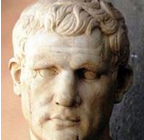This piece was reprinted by OpEdNews with permission or license. It may not be reproduced in any form without permission or license from the source.
From Down With Tyranny
Seymour Hersh recently released a book on his life as a reporter, called appropriately, Reporter. It's gotten praise from many quarters, including from novelist and former intelligence officer John Le Carre': "This book is essential reading for every journalist and aspiring journalist the world over."
Journalist Matt Taibbi has apparently taken le Carre''s words to heart, read it (no surprise) and written an interesting commentary on it for Rolling Stone. I'm drawing the observations below from Taibbi's observations.
Taibbi recounts a story from Reporter about a time when Hersh, who makes his living discovering information that intelligence agencies don't want people to know, was handed a "treasure trove" of secret information the CIA did want him to know.
Taibbi writes:
"Late in his new memoir, Reporter, muckraking legend Seymour Hersh recounts an episode from a story he wrote for the New Yorker in 1999, about the Israeli spy Jonathan Pollard.From this Taibbi takes this lesson: "This offhand line explains a lot about what has made Hersh completely embody what it means to be a reporter. The great test is being able to get information powerful people don't want you to have. A journalist who is handed something, even a very sensational something, should feel nervous, sick, ambivalent."
"Bill Clinton was believed to be preparing a pardon for Pollard. This infuriated the rank and file of the intelligence community, who now wanted the press to know just what Pollard had stolen and why letting him free would be, in their eyes, an outrage.
"'Soon after I began asking questions,' Hersh writes, 'I was invited by a senior intelligence official to come have a chat at CIA headquarters. I had done interviews there before, but always at my insistence.'
"He went to the CIA meeting. There, officials dumped a treasure trove of intelligence on his desk and explained that this material -- much of which had to do with how we collected information about the Soviets -- had been sold by Pollard to Israel.
"On its face, the story was sensational. But Hersh was uncomfortable. 'I was very ambivalent about being in the unfamiliar position of carrying water for the American intelligence community,' he wrote. 'I, who had worked so hard in my career to learn the secrets, had been handed the secrets.'"
From the same story I take an additional lesson: The CIA, through an active, serving, "senior official," attempted to use an unauthorized intelligence leak of massive proportions to undermine and potentially sabotage the decision of an elected, sitting president, nominally the official's boss via the chain of command, all this in 1999, decades before Donald Trump.
Should Pollard have been pardoned by Clinton? Likely not. Pressure on Clinton from Israel and the Jewish-American community was intense, but he eventually decided against a pardon, and a look at the facts shows he made the right decision. Pollard had done quite a lot of damage, was unrepentant, and acted for gain as well as in the interests of Israel. So justice was done.
Yet the method attempted by the CIA to influence this decision included not just normal chain-of-command influence (going into the president's office and arguing the case), but backdoor leaks to the press (Hersh) calculated to make a pardon politically impossible. In other words, to box in a presidential decision, the agency decided to "go rogue" -- use its access to classified intelligence material to force the president it serves to make a decision it preferred.
This is first cousin to blackmail by the keeper of the nation's secrets via a third party (Hersh), and it would actually have been blackmail had someone from the agency gone to Clinton ahead of time and told him of the plan. Which they may well have done.
Keep this intelligence community behavior in mind as you consider (a) how that community operates with respect to U.S. politics; and (b) how it may be helping to get rid of another elected, sitting president, one that few in the Beltway political establishment want to continue in office.
(Note: You can view every article as one long page if you sign up as an Advocate Member, or higher).





